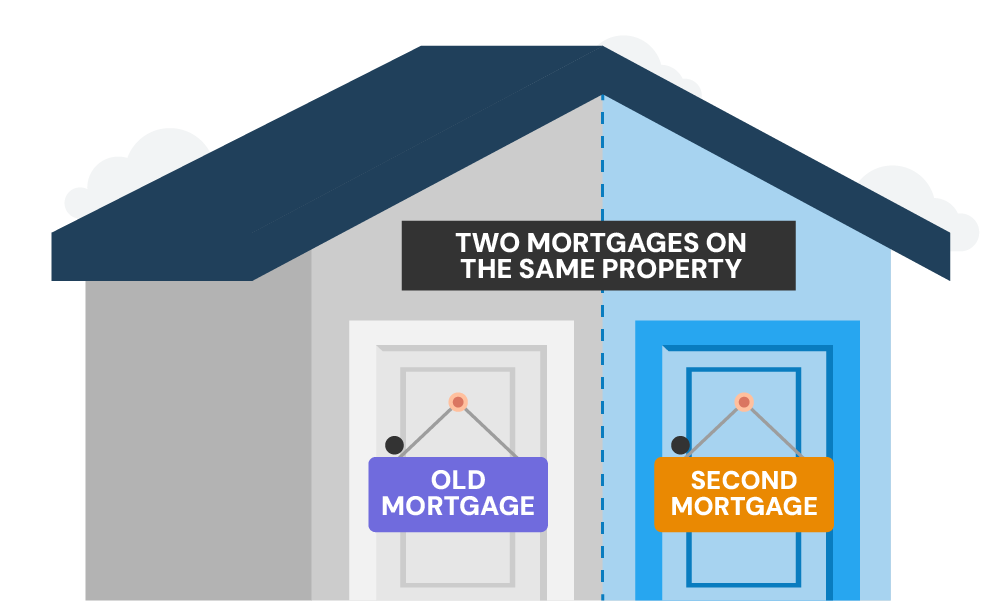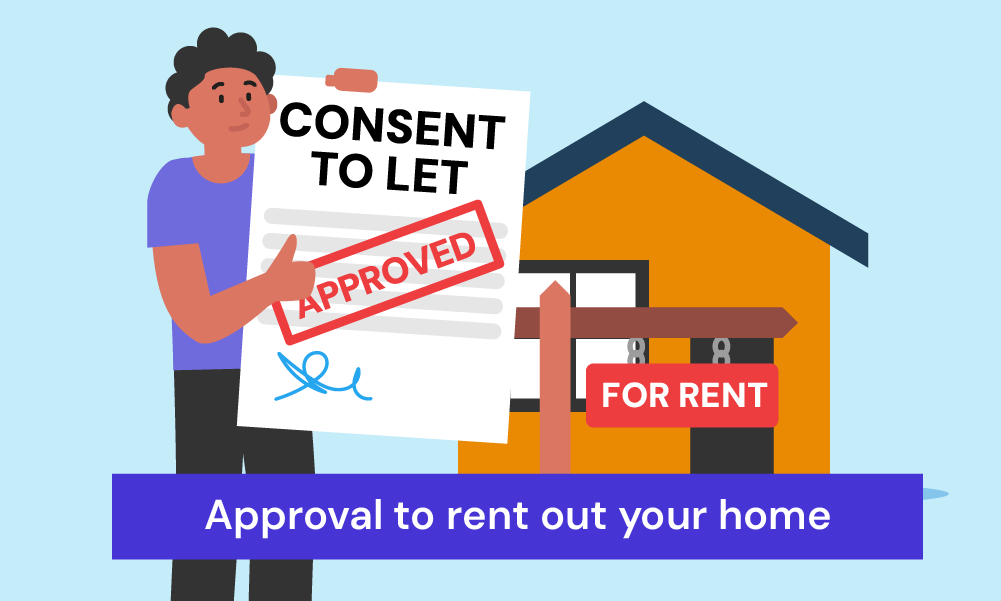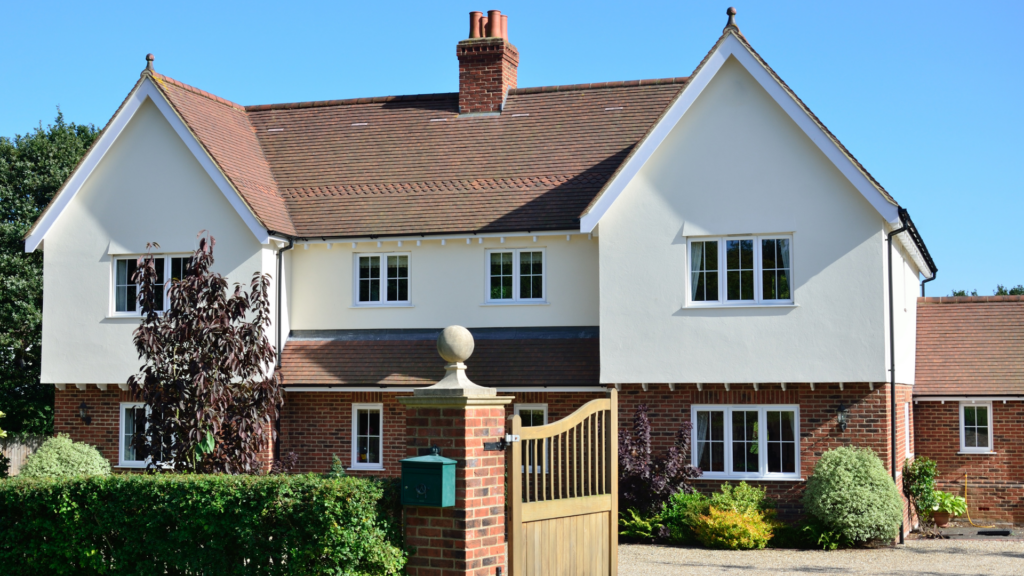- Can I Get More Than One Mortgage?
- Pros and Cons of Having Multiple Mortgages
- Common Reasons for Multiple Mortgages
- Types of Multiple Mortgage Scenarios
- Key Considerations for Multiple Mortgages
- How Many Mortgages Can You Have?
- Getting Approved for Multiple Mortgages
- Alternatives to Multiple Mortgages
- Using a Mortgage Advisor
- The Bottom Line
How Many Mortgages Can I Have in the UK?

Getting a mortgage is often the biggest financial commitment many people make in their lives.
While most homeowners stick with just one mortgage, you may be wondering if you can take out more than one at the same time.
The short answer is yes, you can have multiple mortgages in the UK. However, there are some important factors to consider before taking on additional home loans.
Can I Get More Than One Mortgage?
There is no legal limit to the number of mortgages you can have in the UK.
You can theoretically take out mortgages on as many properties as you want and can get approved for. However, getting approved for multiple mortgages can be challenging.
Lenders will look closely at your financial situation to determine if you can realistically afford the repayments on multiple loans.
Factors lenders consider include:
- Your income and expenses
- Existing debts and credit score
- The amount of equity you have in any properties used as collateral
- Your credit history
Meeting affordability criteria is usually the biggest hurdle for getting multiple mortgages. But it is possible if you have a high enough income and excellent credit.
Pros and Cons of Having Multiple Mortgages
While it’s possible to hold multiple mortgages, it’s not suitable for everyone. Consider the following pros and cons:
Pros:
- Allows you to own multiple properties as investments or holiday homes
- Provides more flexibility to purchase a new home before selling your existing property
- Can access capital in your current home through remortgaging rather than a new loan
- Enables you to consolidate debts or access funds for home improvements
Cons:
- Much harder to meet affordability criteria and get approved
- Requires extensive paperwork and administration
- Increases risks if interest rates rise or you default on a loan
- Additional obligations to manage more properties
- Ongoing costs are higher than a single mortgage
Common Reasons for Multiple Mortgages
Some of the most common reasons homeowners seek multiple mortgages include:
- Buying additional real estate as an investment
- Purchasing a holiday home or second home
- Securing a short-term bridging loan to buy before selling a current property
- Raising capital to start a business by remortgaging their home
- Getting extra funds for major home improvements and extensions
- Consolidating and repaying other debts at a lower interest rate
Types of Multiple Mortgage Scenarios
There are a few common scenarios where homeowners may want more than one mortgage:
Buying an Additional Home
You may be looking to purchase a second home as a holiday home or investment property. This will require a separate mortgage with either the same or different lender as your existing home loan.
Lenders may be cautious about providing a second residential mortgage. However, getting a buy-to-let mortgage on a second property as an investment is usually more feasible if the rental income covers the repayment.
Securing Loans Against Your Existing Property
You can take out additional mortgages on a home you already own if you have enough equity built up. These are often referred to as second charge or third charge mortgages.
The most common reasons for securing a second mortgage are to finance home improvements or consolidate other debts.
The additional loans will be provided by separate lenders from your original mortgage.

Building a Property Investment Portfolio
Many landlords have portfolios of multiple investment properties financed with separate buy-to-let mortgages. However, managing many mortgages can become administratively burdensome.
Once you reach 3-4 or more properties, you may want to look into switching to a portfolio mortgage. This allows you to consolidate multiple mortgages into one larger loan secured against the entire portfolio.
Holiday Lets
If you want to purchase a holiday home that will also generate rental income when not in use, you will need a specific holiday let mortgage. These have different requirements to standard residential and buy-to-let mortgages.
Holiday let mortgages provide flexibility for owner-occupancy at certain periods but also allow commercial letting at other times of the year.
Speak to a broker to understand if this is the right option for your situation.
Letting Out Your Own Home
In some cases, you may need consent from your lender to let out your existing residential property on a short-term basis. This is known as “consent to let”.
If you wish to let the property more long-term, the lender will usually switch your mortgage type to a buy-to-let mortgage with different conditions attached.

Buying Before Selling with a Bridging Loan
If you want to purchase a new home before selling your existing property, you may need short-term financing to bridge the gap.
A bridging loan acts as a second mortgage, allowing you to borrow capital against your current home to temporarily cover buying the next one.
This avoids the need to apply for full mortgages on both properties.
Key Considerations for Multiple Mortgages
While it’s possible to juggle multiple mortgages, it significantly increases your risks and obligations as a borrower. Before pursuing this route, think carefully about the following:
Affordability
- Can you afford all the repayments and associated costs if interest rates rise or your circumstances change?
- Do you have enough income to cover periods where a rental property might be vacant?
Your credit score
- Taking on additional debt can damage your credit rating if not managed prudently
- Defaulting on one mortgage would likely impact your ability to keep up with others
Your goals
- What are your reasons for wanting multiple properties? Is it for investment, leisure, or both?
- Are you prepared to take on the work of managing more properties?
Risk mitigation
- Make sure you have adequate insurance coverage across all properties
- Try to build up emergency funds as a buffer against unexpected costs
- Use a professional mortgage advisor to help structure loans appropriately
How Many Mortgages Can You Have?
While there is no legal maximum, taking on more than 3-4 mortgages would be highly unusual and very risky for most people.
However, investors with extensive experience managing properties may have larger portfolios of 5-10 mortgages.
Here are some guidelines on feasible numbers of mortgages:
- 1-2 mortgages – Most common for average homeowners
- 2-4 mortgages – Reasonable for many real estate investors
- 5+ mortgages – Only viable for experienced landlords with substantial assets
The number of mortgages you can have ultimately depends on your financial situation and ability to meet affordability criteria. Consult mortgage advisors to structure your loans appropriately.
Getting Approved for Multiple Mortgages
If you’ve decided multiple mortgages align with your goals and risk tolerance, here are some tips for getting approved:
- Check your credit report – ensure there are no errors or negatives that could affect your application
- Pay down existing debts – this reduces your debt-to-income ratio
- Make larger down payments – signals you can cover costs and lowers LTV ratios
- Have consistent income – stable earnings from employment or investments preferred
- Use a mortgage broker – an expert can help you find the right lenders and structure loans advantageously
It also helps if you have some equity built up in a property to use as collateral. Try to only take on new loans you are confident you can afford.
Alternatives to Multiple Mortgages
If getting approved for multiple mortgages seems too difficult, here are a couple of alternatives to consider:
Remortgaging
You may be able to release equity from your current home through remortgaging to access funds for a second property purchase or home improvements. This avoids the need for a separate mortgage.
Bridging loans
A bridging loan offers short-term financing to bridge the gap between buying a new property and selling your existing home. This temporarily provides access to capital needed for a second purchase.
Using a Mortgage Advisor
Trying to navigate multiple mortgages on your own can be extremely complex. An experienced mortgage advisor or broker can provide invaluable assistance with:
- Determining if multiple mortgages suit your situation
- Sourcing mortgage products from appropriate lenders
- Structuring the loans advantageously
- Ensuring the application process goes smoothly
The fees for their services are usually worth the expertise and convenience they provide. It gives you confidence you are making informed decisions.
The Bottom Line
Having multiple mortgages in the UK is possible but comes with greater financial risks and obligations.
Weigh up your goals, budget, and risk tolerance before pursuing this route. Getting approved requires a strong financial profile and meeting strict affordability criteria.
Work with a qualified mortgage advisor to explore your options and structure loans appropriately for your situation. With prudent planning, multiple properties can be a worthwhile investment opportunity.
For assistance with multiple mortgages, reach out to us. We will connect you with a knowledgeable mortgage broker experienced in handling multiple property finances.
Get Matched With Your Dream Mortgage Advisor...

Frequently asked questions
How many buy-to-let mortgages can I get?
In the UK, there’s no fixed limit on the number of buy-to-let mortgages you can hold. Lenders generally evaluate if the rental income covers 125-145% of the mortgage payments.
This ‘rental coverage ratio’ is crucial in determining how many mortgages you can comfortably manage.
Can I switch from a buy-to-let mortgage to a residential one?
Yes, converting a buy-to-let mortgage to a residential one is possible if you plan to occupy the property.
This process involves some fees and could offer savings compared to typical buy-to-let rates. However, the lender’s policies and the implications for your tax situation should be considered.
Do I need to stick with the same lender for all my mortgages?
There’s no requirement to use the same lender for all your mortgages. Diverse lenders might offer different advantages, but each will assess your affordability considering your entire financial situation, including existing debts and income sources.
What is the maximum number of mortgages I can hold?
Legally, there’s no cap on the number of mortgages you can have. However, managing more than five mortgages is uncommon and often signifies a high level of property investment expertise. Beyond this, the complexity and financial risk significantly increase.
How does remortgaging work with multiple mortgages?
Remortgaging any of your properties works similarly to a single mortgage, but the lender will assess your total financial situation, including all existing mortgages. This ensures that your overall debt level remains manageable.
Can I get a mortgage if I have CCJs or bad credit?
Yes, subprime lenders offer mortgages to those with CCJs or bad credit – but interest rates are higher to account for the increased risk.
Can I have different types of mortgage products for different properties?
Yes, you can select from various mortgage types (fixed-rate, variable-rate, interest-only) based on each property’s circumstances and your investment strategy. Diversifying mortgage products can be a smart approach to risk management.
Are multiple mortgages portable if I move homes?
Mortgage portability varies by lender and specific mortgage product. Some mortgages allow you to transfer them to a new property, which can be beneficial if you move homes but wish to retain favourable mortgage terms.
Always check the terms and conditions for portability features.




